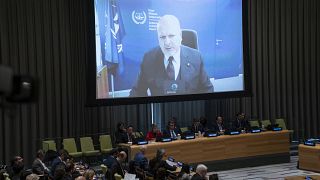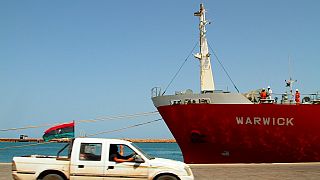Libya
A long-time hobby became a lifeline for a Syrian family in Libya struggling to survive the economic impact of COVID-19.
When 42 years old Fidaa and her family fled Syria to Tripoli, Libya eight years ago, they left everything behind. Her husband Hani was the main breadwinner, providing for Fidaa and their two daughters Ghazal and Mariam.
He worked various manual jobs to make ends meet. But when the COVID-19 pandemic hit, Hani found it hard to find work and his health started deteriorating.
Fidaa stepped in, turning her long-time hobby of knitting into a business that she hopes can grow to provide even more financial security for her family.
“I make dresses for girls, baby blankets, socks, hats, hair clips, anything really to get some income,” Fidaa said.
“Back in Syria, it wasn’t for survival, it was a hobby. I lived in a house we owned, and we had a comfortable life.”
“When she started to work, she filled a financial gap,” Fidaa’s husband Hani said. “If we needed a plate for the house, she’d sell a dress, and instead of one plate she’d buy three. She sells something else and buys a pot."
After 10 years of crisis, life is harder than ever for displaced Syrians. Millions have been forced to flee their homes since 2011, seeking safety as refugees in Lebanon, Turkey, Jordan, Libya and beyond, or are displaced within Syria.
With the devastating impact of the COVID-19 pandemic and increasing poverty, every day feels like an emergency for Syrians forced to flee.











01:48
Meet one of the teams patrolling Senegal's waters to rescue migrants on small boats
01:38
Chad hosts over 680,000 Sudanese refugees
01:03
Uganda: Victims of lightning strike buried
Go to video
At least 14 people die in lightning strike on refugee camp in Uganda
02:19
Thousands of refugees in Uganda struggle to get by, amid cuts in humanitarian aid
01:34
Widespread condemnation of Israel's decision to ban UN relief agency